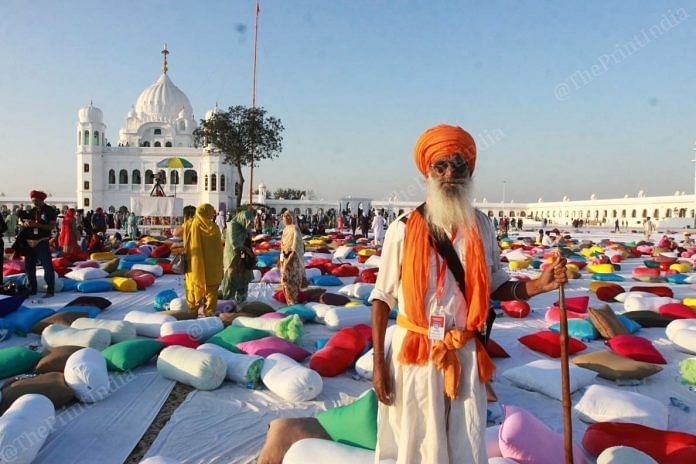The grand opening of the Kartarpur corridor has been hailed as a much-needed confidence-building measure between India and Pakistan. But amid the India-Pakistan bonhomie, some are asking if it will go the same way as Atal Bihari Vajpayee’s ambitious Delhi-Lahore bus service.
Two decades ago, a similar euphoria swept both sides of the LoC when then-PM Vajpayee travelled from Amritsar to Lahore in a bus in 1999 and famously hugged his Pakistani counterpart Nawaz Sharif. But soon after, both countries fought the Kargil war, and the bus diplomacy broke down.
Kartarpur corridor, however, is unlikely to go the Lahore bus way.
Also read: Imran Khan’s fantasy to revive Khalistan isn’t happening because Sikhs aren’t gullible
Bus diplomacy didn’t work
India and Pakistan have fought four wars and there have been innumerable incidents of border skirmishes in the last seven decades. The last one year, however, saw the ties between the two countries hitting an abysmal low in a long time. Yet, in the middle of the prevailing hostilities, Kartarpur corridor became a reality.
The Lahore bus service, on the other hand, came to a halt in the wake of the 2001 Parliament attack, it was resumed in 2003, and has now again been suspended by Pakistan after Narendra Modi government’s Article 370 move.
Another bus service between Srinagar and Muzaffarabad in Pakistan-occupied Kashmir (PoK), called Karavan-e-Aman, has met a similar fate. It kicked off in 2005 but has since hit several roadblocks. After the Pulwama terror attack on 14 February, India has now indefinitely suspended the bus service.
Ever since the Modi government scrapped Jammu and Kashmir’s special status under Article 370, both India and Pakistan have suspended the Thar Express and the Samjhauta Express as well.
Also read: Kartarpur corridor is religious diplomacy at work, a promising new trend around the world
Why Kartarpur is a success
But Kartarpur corridor is unlike a ‘bus yatra’ or a train service that can be suspended or resumed as per the whims and fancies of the governments in India and Pakistan. All this while, talks on Kartarpur have remained on track. What explains the success of the corridor?
Sikhs are nobody’s enemy. If Pakistan had to foment Khalistani disturbance in Punjab, it could have done so in the last six decades through the Jatha pilgrims who travel from India to Pakistan at least four times a year. Not a single Jatha pilgrim has been convicted for carrying out terrorist activities within Punjab or across India.
Second, Kartarpur is a religious corridor and Sikhs are important vote-banks for governments on both sides of the border. Neither India nor Pakistan can afford to disrupt the movement of pilgrims through this corridor. Also, Sikhs from India and Pakistan form a large part of the expatriate community and closing the corridor would tarnish the international reputation of both the countries.
The fact that the US State Department gave a statement on Kartarpur corridor on the day of the opening shows the corridor has the tacit support of the international community at large.
Third, both sides would like to view the Kartarpur corridor as a sort of safety valve that can help diffuse tensions between India and Pakistan in near future.
The corridor will prove to be the most effective confidence-building measure, although Prime Minister Narendra Modi as well as his Pakistani counterpart Imran Khan have refrained from labelling it as one. Former Prime Minister Manmohan Singh, who was part of the delegation that visited the Kartarpur Sahib gurdwara in Pakistan, said the “Kartarpur model” can offer “lasting resolution of conflicts”.
And finally, the patience and perseverance of Indian Sikhs must be credited for the opening of the corridor. Several Sikh organisations have made numerous representations to officials in positions of power, besides offering prayers along the India-Pakistan border every month. Further, the connection that the Muslim world has with Nanak because of his long journey to Mecca-Medina is also an important factor in the Kartarpur story.
During the inauguration of the corridor Saturday, Prime Minister Modi even thanked Imran Khan for respecting the sentiments of Indians, signaling a possible thaw in the frosty India-Pakistan ties.
It is now up to the political leadership in India and Pakistan to decide how they want to use the Kartarpur corridor – as a peace-keeping measure or as a tool to whip up anger.
Also read: Modi’s ‘Niazi’ jibe at Imran Khan in Kartarpur address refers to this Pakistan Army general



